Permaculture, Homesteading, and Community Building // Legal Basics of Urban Farming (Part 2)
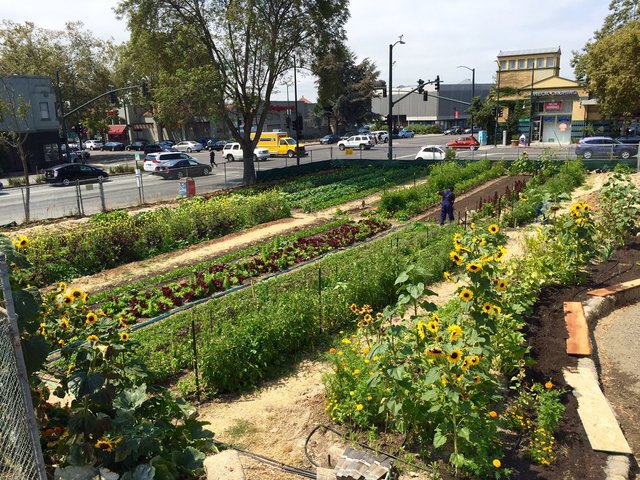
Hi friends! I recently attended a daylong workshop called "Legal Basics of Urban Farming". It was put on by the University of California Agriculture and Natural Resources. When I began my urban permaculture farm, I had no idea how many regulations I would have to follow. Urban farming is difficult because there are often many more regulations and red tape for farming in city limits, especially if you live in a residential zone. However, one presenter at the workshop said to keep in mind that an urban farmer does not necessarily need to follow the letter of the law. In a lot of farming workshops I have heard the phrase "ask forgiveness not permission". That being said, if you follow that route, I highly recommend at least knowing the regulations that you should be following, even if you decide not to.
Part 2 is a post on the presentation that Christina Oatfield gave in the beginning of the workshop, as well as a Q&A from all of the presenters. Christina is the Policy Director and the Sustainabile Economies Law Center. Please keep in mind that some of the information that I am passing on is California specific, and may not apply to you depending on where you are located. This information is just to provide a general overview of permits, licenses, and regulations for urban agriculture, which is at the forefront of urban planning and has been rapidly changing in the favor of urban farmers (at least in California).
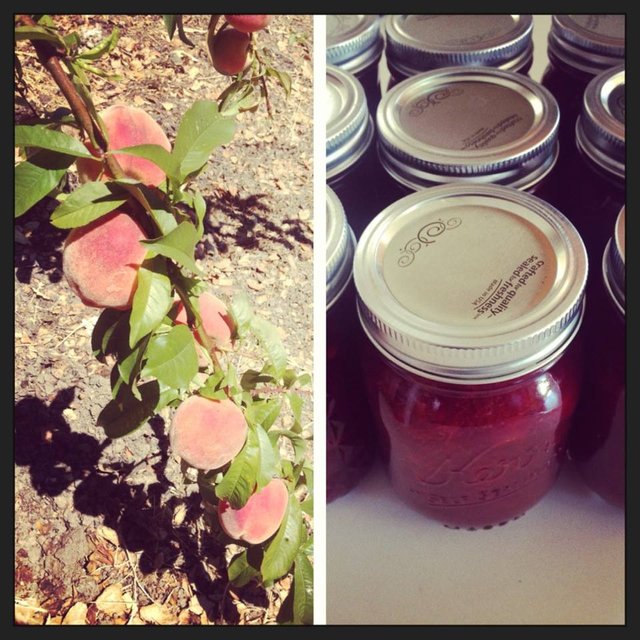
A) Permits Needed to Sale Fruits and Vegetables
- Community Food Producer (agricultural producers who grow food on land that is not zoned as agricultural land)
a) no permit needed to be a community food producer - Certified producers
a) permit needed to be a certified producer
b) enables you to sell at farmers’ market
c) must apply for a certificate from the California Department of Food and Agriculture - Community Supported Agriculture (CSA) Sellers
a) must register with the CDFA ($75 fee)
b) allows you to sell CSA boxes to community members
B) California Small Farm Food Safety Guidelines - fruits and vegetables
- Who must follow the guidelines? “community food producers”, “certified producers” (if you want to sell at a farmer’s market), “CSA farmers”
- What do they require? examples - record keeping, water testing, hand washing, keeping animals out of fields, proper application of manure as fertilizer, clean and sanitize equipment, use properly working refrigeration, do not wear field clothes when packing produce
C) Requirements for Selling Eggs
- register annually with CDFA ($75 first time, $50 thereafter)
- labeling - name of farm, including address and zipcode, quantity, the words “keep refrigerated”, name of handling number, egg size and egg grade distinction
- must sell the eggs within 4 days
- eggs must be cleaned and sanitized
- avoid storing in direct sunlight
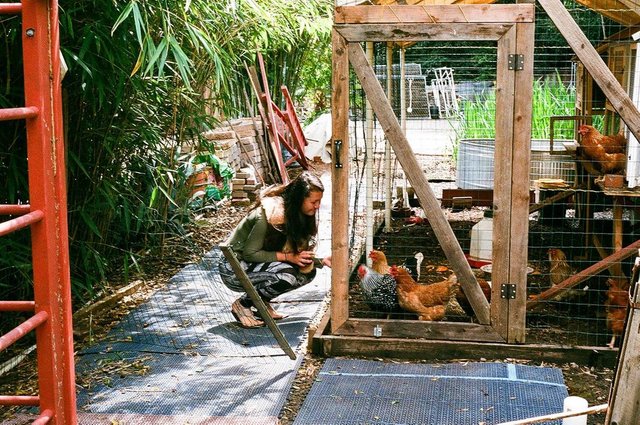
D) Cottage Food Law (AKA California Homemade Food Act)
- examples of foods allowed to be made in a home kitchen and sold to the public through the Cottage Food Law - roasted coffee, jams, jellies, breads, baked goods, granola, nut butters, chocolate covered nuts, dried fruits, dried teas, dried spices, dried herbs
- restrictions - max $50,000 in annual gross sales
- business owner, household/family members, and 1 full-time employee can participate
- indirect sales and wholesales are limited sometimes just to the county (depends on the zipcode)
- requires a safe food handling class ($15 or less online)
- insurance is not required, but recommended
- labeling requirements - product name, ingredients (in order of predominance by weight), allergens statements (nuts, milk, wheat, eggs, soy), phrase “made in a home kitchen”, name of business (or just your name), permit/registration number from your cottage food permit, address on label (unless your address is in the phone book), weight (if product is sold by weight), do not need a full nutrition facts label
- Obtain a permit from county Department of Environment Health - class A permit (direct to consumer sales only) or class B permit (indirect and wholesale sales)
- Class A - no kitchen inspection required ; Class B - kitchen inspection required
- More information - www.theSELC.org/food
E) Homemade meals advertised online is a big thing now
- Not yet legal, but bill pending to make home cooking legal (Bill AB 626)
- Example - ExtraPlate (on demand food marketplace)
- Josephine’s is another online platform advertising home-cooked meals
F) Worker Cooperatives
- Owned by the workers!
- Workers share profits in proportion to each worker’s contribution
- One member, one vote
- Sometimes all workers are on the board of directors, sometimes workers may elect board of directors
- Examples of worker coops in Bay Area - Arizmendi, Cheeseboard, Alvarado St Bakery, Rainbow Grocery Store, Other Avenues, New Hope Farms
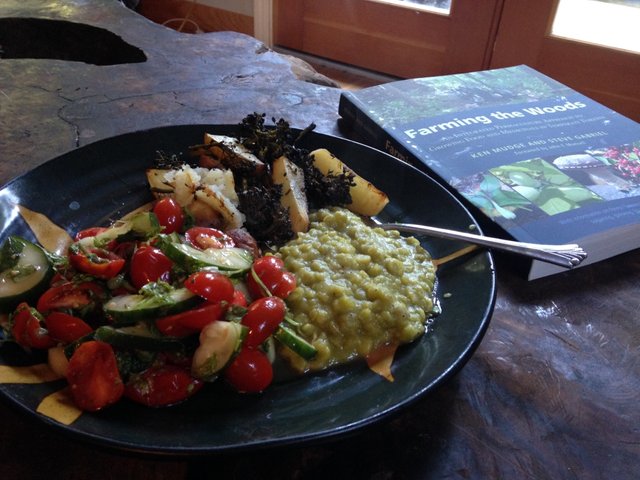
After Christina shared her wonderful insights into the legality of urban farming, there was a Q&A with all of the presenters.
Question:
How do you deal with co-mingling of produce from two or more farmers in CSA boxes in terms of regulating quality and food safety?
Answer:
We ensuring that record keeping is done.
The problem with co-mingling and being a certified producer is that you can only sell the produce that you yourself grew, so a whole community garden cannot be a certified producer, each individual has to be a certified producer.
Question: In terms of educational farm programs, what is allowed in different types of labor that is compliant with California’s employment laws?
Answer:
Under employment laws, if anyone is putting in hours in a for-profit enterprise they (almost always) must be paid employees. Under a non-profit enterprise, volunteers and unpaid internships are (for the most part) allowed.
Question: In public spaces, such as food forests in public parks, what public regulations are in place to ensure food safety?
Answer:
We currently do not have any regulations put in place to ensure food safety.
Sometimes it takes a while for local governments to catch up with state laws.
The legal responsibility would go back to the Parks and Recs Department or the non-profit contracted to install the food forest (depending on the contract), in case of a situation of food borne illness from that food forest.
Some cities will outright say that they are against installing edible plants in public spaces because they are afraid of liability.
Typically, in community gardens where produce is free to all members of the community, the property owner would be the liable party in case of a food borne illness, unless a contract otherwise states so.

Question: How are you dealing with the fact that many new food businesses are started by immigrant populations and the fact that there may be language barriers between those entrepreneurs and food regulators?
Answer:
We have some translators for as many languages as possible. Often they will have a friend or family that can speak English and help out in translating.
One issue with immigrant populations in the food industry is that list of approved cottage foods is not culturally appropriate for many communities. It is typically just sugary Eurocentric snacks, and does not incorporate other culturally appropriate food in relation to the communities in the Bay Area.
Question: What are the regulations behind having a cooking class and the students preparing their own meals (such as fermented veggies) that are not on the approved Cottage Food Laws list?
Answer:
As long as the the student is preparing the meal themselves and consuming the meal themselves you do not need a permit. Also, the ingredients that you are providing must be from an approved source (this can be from your farm as long as you are registered as an approved source).
You do not need a permit, but you are still liable if someone gets sick from these meals. Therefore, it is always recommended to be working under a business entity (such as an LLC) and have a home-based food insurance.
If you are preparing the meal and the students are consuming the meal you need a permit. If you are preparing the meal and selling the meal to the public then you need the permit.
Question: How can I farm on vacant land?
Answer:
Make sure that you have a lawful contract with the land owner of the vacant land to be farming on the land.
Make sure that the city zoning law allows for an urban farm in that particular space.
Make sure you know why the site is vacant - Does it have heavy contamination of lead? Was it a former gas station with residue in the soil? Was there a former building burnt down on the site that left heavy metals in the soil?
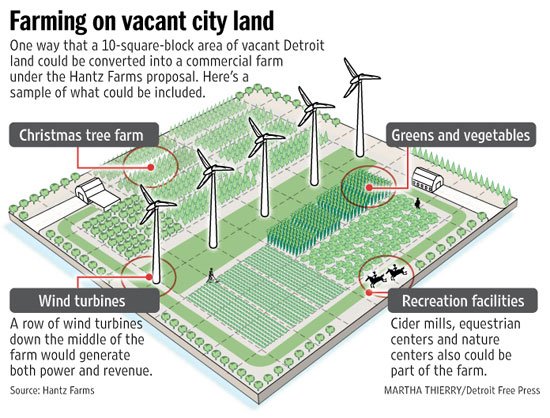
It was a wonderful session that just touched on the tip of the iceberg for the legal basics of urban farms. The presenter for this session also happened to be head of the Food Policy Council for my county, and we chatted afterwards about working together to draft and attempt to pass an ordinance permiting for-profit urban agriculture on residential land. I also want to work with the Food Policy Council in the future to pass an ordinance permitting front yard farm stands to sell your extra garden produce (yes, as of right now my city does not allow urban farms or small front yard farm stands). This just goes to show that if you don't agree with the legal structures around urban farming, you can change them! It all starts at the local policy level. This also reinforces my belief that every urban farm is an act of resistance to our current political environment. The current political environment that I am referring to is that of valuing big businesses and invisible shareholders and dependencing on big agriculture, rather than valuing quality of life for workers and self-sustainability for communities.

Why are those many regulations?
There is no strict regulation here in Hungary. True, in urban parks you can't see any community gardens. Here, I'm worried about malicious, envious, rancorous people. I've been planting zucchini and tomatoes a couple of years ago near our block of flats. They looked at me as I'm an enemy, who damages the lawn. Then they suspected I steal the water from the common room, which was not true. I brought 20 liters of water per day to the garden, of course from our apartment. As a result of the irrigation, there was a very abundant crop of zucchini and tomatoes. The following year, unfortunately, my neighbors did everything to stop me gardening.
@anwenbaumeister
Just to grow food. I read down through your post, and it seemed like a lot of red tape to me. It is always under the guise of protecting the public. Whatever.
How would anyone know who has the jurisdiction? If you were new to an area.
I was thinking you were telling us, that to sell to the public.
How about for yourself and your family? Should be OK to grow?
You put a lot of work into this post. To dig out all the pertinent information for California urban growers will take some time.
Thank you for this good information.
Francis
It is a lot of red tape, and can be super frustrating! Each area has different regulations, I would call your city first to check in with them, and then county.
To grow for myself and my family there are no regulations. Though unfortunately some cities have restrictions on front yard gardening for "aesthetic purposes" regardless of who is eating the food. It's time to change some of the restrictions...
hey that's a very cool concept...never heard about urban farming before...thanks for sharing this...I hope it reaches the desired scale
Thanks @vj1309! I think urban farming is growing a lot, and we will continue to see many shapes and forms of it :-)
amazing! this is the type of post i was hoping to coming across when i joined this community. thank you, thank you, thank you! upvoted, resteemed and sharing with my friends over on facebook to show them why they should be here 😉
Thanks so much @tommyquest, that means a lot to me! I'm so glad that you are part of the Steemit community and sharing it with your friends!
Love this post, thank you for quality content. Boy the USA really have tough legislation, but I love the idea, of "ask for forgiveness not Permission" I might have to try that approach, with the slightly less laws we have here in Canada.
Thanks so much! Yes...we have so many restrictions that I didn't even realize until I tried to do something "out of the ordinary". I hope that approach works for you in Canada!
Nice job !!! Lots of documents you read !
But I have question :
Do you think that farming is possible on main intersection ?
Cars are going to pollute future food.
In the quiet place - it's alright.
Well, that what I am thinking.
=]
Nice!
Stunning post! Keep it coming!!
very nice. I like yours
that is your garden
Very informative post. Thanks for the great information. There are a lot of considerations to getting back to the earth.